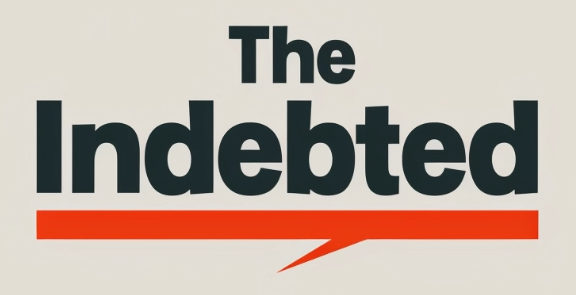Debt can be a stressful and overwhelming issue for many people. It can be difficult to know where to turn or what steps to take in order to get back on track. Credit counseling is one option that can be very helpful in managing debt. Credit counseling is a service that provides financial education, budgeting assistance, and debt management plans to individuals who are struggling with debt.
Credit counseling can be a great resource for those who are struggling with debt. A credit counselor can help you understand your financial situation and create a plan to get back on track. They can also help you negotiate with creditors and create a budget that will help you pay down your debt. By working with a credit counselor, you can gain the knowledge and skills you need to manage your debt and improve your financial situation.
Understanding Credit Counseling
As someone who has struggled with debt, I know firsthand how overwhelming it can be. That’s where credit counseling comes in. Credit counseling is a service that offers financial education and support to individuals struggling with debt. In this section, I’ll explain what credit counseling is and the benefits it can offer.
What Is Credit Counseling?
Credit counseling is a service provided by certified credit counselors that helps individuals develop a plan to manage their debt. Nonprofit credit counseling agencies are the most common providers of credit counseling services, and they offer their services either in person, over the phone, or online.
During a credit counseling session, a certified credit counselor will review your financial situation and provide you with personalized advice on how to manage your debt. They will help you create a budget and develop a debt management plan that is tailored to your needs. A debt management plan is an agreement between you and your creditors that outlines how you will repay your debts. Credit counseling agencies work with your creditors to negotiate lower interest rates, waive fees, and set up a repayment plan that is affordable for you.
Benefits of Credit Counseling
Credit counseling offers several benefits to individuals struggling with debt. Here are a few of the most significant benefits:
-
Financial Education: Credit counseling agencies provide financial education to help you develop the skills you need to manage your finances effectively. They can help you understand how to create a budget, save money, and manage debt.
-
Debt Management: Credit counseling agencies work with your creditors to develop a debt management plan that is tailored to your needs. They negotiate with your creditors to reduce interest rates, waive fees, and set up a repayment plan that is affordable for you.
-
Reduced Stress: Debt can be incredibly stressful, and credit counseling can help reduce that stress. By working with a credit counselor, you can develop a plan to manage your debt and regain control of your finances.
In conclusion, credit counseling is a valuable service that can help individuals struggling with debt. By providing financial education, debt management, and reduced stress, credit counseling agencies can help you regain control of your finances and achieve financial stability.
Creating a Debt Management Plan
As a credit counselor, I know that creating a debt management plan is one of the most important steps in the debt management process. A debt management plan is a structured repayment plan that helps individuals pay off their debts in an organized and manageable way. Here are the steps involved in creating a debt management plan:
Assessing Your Financial Situation
The first step in creating a debt management plan is to assess your financial situation. This includes taking a look at your income, expenses, and debts. You need to know exactly how much money you have coming in each month and how much you are spending on bills, groceries, and other expenses. You also need to know how much you owe to each creditor and what your interest rates and minimum payments are.
Setting Up a Realistic Budget
Once you have a clear understanding of your financial situation, the next step is to set up a realistic budget. A budget is a plan that outlines how you will spend your money each month. It is important to create a budget that is realistic and achievable. This means that you need to take into account all of your expenses, including your debts, and make sure that you have enough money to cover everything.
Implementing the Debt Management Plan
Once you have assessed your financial situation and set up a realistic budget, the next step is to implement the debt management plan. This involves working with a credit counseling agency to create a payment plan that fits your budget. The credit counseling agency will negotiate with your creditors to lower your interest rates and monthly payments. You will then make one monthly payment to the credit counseling agency, which will distribute the funds to your creditors.
A debt management plan can be an effective way to pay off your debts and regain control of your finances. However, it is important to work with a reputable credit counseling agency and to make sure that the debt management plan is realistic and achievable. By following these steps, you can create a debt management plan that works for you and helps you achieve your financial goals.
Strategies for Debt Reduction
As a credit counselor, I have found that there are several effective strategies for reducing debt. Here are some of the most popular and effective options:
Debt Consolidation Options
Debt consolidation is a popular way to reduce debt. This involves taking out a new loan to pay off multiple debts. This can simplify your payments and reduce your interest rate, which can save you money over time. There are several types of debt consolidation options available, including:
- Personal loans
- Home equity loans
- Balance transfer credit cards
When considering debt consolidation, it is important to weigh the pros and cons of each option. For example, personal loans may have higher interest rates than home equity loans, but they are often easier to qualify for.
Negotiating with Creditors
Negotiating with creditors can be an effective way to reduce debt. This involves reaching out to your creditors and asking for a lower interest rate or a payment plan that fits your budget. This can be a difficult process, but it can be very effective if done correctly.
When negotiating with creditors, it is important to be prepared. This means having a clear understanding of your budget and your debt situation. It also means being persistent and not giving up if your first attempt is unsuccessful.
Interest Rate Reduction Techniques
Reducing your interest rate can be an effective way to reduce your debt over time. There are several techniques that can be used to reduce your interest rate, including:
- Refinancing
- Debt settlement
- Balance transfer credit cards
Refinancing involves taking out a new loan with a lower interest rate to pay off your existing debt. Debt settlement involves negotiating with your creditors to reduce the amount you owe. Balance transfer credit cards allow you to transfer your existing debt to a card with a lower interest rate.
When considering interest rate reduction techniques, it is important to weigh the pros and cons of each option. For example, refinancing may have fees associated with it, while debt settlement can have a negative impact on your credit score.
Overall, there are several effective strategies for reducing debt. By working with a credit counselor and exploring your options, you can find the solution that works best for your unique situation.
Impact on Credit and Finances
As I mentioned earlier, credit counseling can be an effective tool for managing debt and improving financial stability. In this section, I will discuss how debt management affects credit scores and long-term financial stability.
How Debt Management Affects Credit Scores
One of the biggest concerns people have when considering debt management is how it will impact their credit scores. The truth is, enrolling in a debt management program can have both positive and negative effects on your credit score.
On the positive side, making consistent, on-time payments through a debt management program can help improve your credit score over time. This is because payment history is a significant factor in determining your credit score, and making timely payments can have a positive impact.
However, enrolling in a debt management program can also have a negative impact on your credit score in the short term. This is because creditors may report your accounts as being enrolled in a debt management program, which can be seen as a negative factor by lenders.
Long-Term Financial Stability
While debt management can have a short-term impact on your credit score, the long-term benefits of enrolling in a program can be significant. By working with a credit counselor, you can develop a plan to pay off your debts and improve your overall financial situation.
In addition to helping you pay off your debts, credit counseling can also provide valuable education and resources to help you manage your finances more effectively. This can include budgeting tips, debt management strategies, and credit report review.
By following the advice and guidance of a credit counselor, you can become debt-free and achieve greater financial stability over the long term.
Alternatives and Additional Resources
If credit counseling is not the right solution for your debt management needs, there are other options available. Here are a few alternatives and additional resources to consider:
When to Consider Bankruptcy
In some cases, bankruptcy may be the best option for managing overwhelming debt. If you are considering bankruptcy, it is important to speak with a qualified attorney who can advise you on the best course of action for your situation. Bankruptcy can have serious consequences, including damage to your credit score and the loss of valuable assets, so it should only be considered as a last resort.
Nonprofit vs. For-Profit Debt Relief
When researching debt relief options, it is important to understand the difference between nonprofit and for-profit organizations. Nonprofit debt relief agencies, such as consumer credit counseling services, are typically funded by grants and donations and offer free or low-cost services to consumers. For-profit debt relief companies, on the other hand, charge fees for their services and may not always have your best interests in mind. Be sure to do your research and choose a reputable organization that has your best interests in mind.
Additional Financial Counseling Services
In addition to credit counseling, there are a variety of other financial counseling services available to help you manage your debt. These services may include budgeting assistance, debt management plans, and financial education programs. Some organizations, such as the National Foundation for Credit Counseling, offer a variety of services to help consumers get back on track financially. Be sure to research your options and choose a service that meets your specific needs.
Overall, credit counseling can be a valuable tool for managing debt, but it is not the only option available. By exploring alternative resources and understanding your options, you can make an informed decision about the best course of action for your financial situation.




